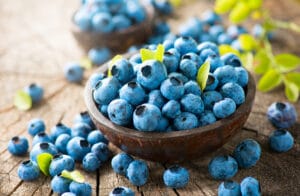Anti-Inflammatory Foods For Seniors
Inflammation is one of our immune system’s defense mechanisms against infection or harm. However, our bodies may become inflamed in response to specific events such as stress, extra weight, allergen exposure, or other factors that do not offer an immediate hazard. As a result, many individuals suffer from persistent low-grade inflammation. Chronic inflammation, according to research, is harmful and may lead to a number of prevalent ailments among seniors, including diabetes, heart disease, cancer, dementia, and rheumatoid arthritis.
Believe it or not, you can fix many things through diet. Not all seniors will be able to stick to a diet or want to cook anymore. If your parent or loved one wants to age in place but needs help with cooking, bathing, and dressing, it is time to look at elder care providers to help. Home care providers may help your seniors with basic things that are all necessary to live alone. They will help seniors live independently and take the stress off of your shoulders.
Certain foods, such as red meat, white wheat, soda, and fried meals, might cause inflammation. However, several foods provide potent anti-inflammatory qualities that may help manage chronic inflammation. These meals may even help prevent or mitigate the impacts of some aging-related disorders, such as arthritis-related joint discomfort. If you have been looking for anti-inflammatory foods or things to recommend for your seniors to eat, take a look at this list.
Add In Fruits and Veggies

Home Care Salisbury, NC: Anti-Inflammatory Foods
Fruits and vegetables are great anti-inflammatory foods because they contain anti-inflammatory antioxidants and polyphenols. To reduce inflammation, seniors should consume at least five servings of anti-inflammatory vegetables and fruits in a variety of hues (yellow, orange, red, green, blue, purple, brown, and white). Broccoli, peppers, and leafy greens, including spinach, kale, and collard greens, are anti-inflammatory. Berries, cherries, tomatoes, avocados, grapes, and oranges are anti-inflammatory fruits. Fruits and vegetables are low in calories and may help decrease inflammation.
Eat Beans With Meals
Pinto beans, red kidney beans, black beans, and garbanzo beans all provide fiber and protein, and their antioxidants and magnesium content may help decrease inflammation. By including a cup or more of beans in a senior’s diet twice a week, significant anti-inflammatory effects may be obtained.
Adding In Nuts
Nuts are an excellent source of fiber, protein, and good fat. Additionally, several nuts such as almonds and walnuts contain anti-inflammatory chemicals such as omega-3 fatty acids. By substituting a handful of nuts for a sweet, highly processed snack, seniors may easily include anti-inflammatory foods into their diets.
Eat Fish
Salmon, herring, trout, mackerel, and sardines are high in the anti-inflammatory omega-3 fatty acids EPA and DHA. While omega-3 supplements are popular, the most effective strategy to harness the anti-inflammatory properties of EPA and DHA is to include fatty fish twice a week on the menu.
Drink a Cup of Green tea
Green tea has long been considered medicinal: loaded with antioxidants and a polyphenol called EGCG, it is the grandfather of anti-inflammatory beverages. Substituting hot or cold unsweetened green tea for a soda or other sugary beverage is a pleasant method for seniors to combat inflammation and dehydration.
If you or an aging loved one are considering home care in Salisbury NC, contact the caring professionals at TenderHearted Home Care today. Call us at (704) 612-4132
- 5 Things That Help Seniors Sleep Better - April 18, 2024
- It’s Okay to Think About Your Needs and Not Just an Aging Parent’s, and In-Home Care Helps You Do That Without Guilt - April 4, 2024
- Volunteering Tips for Seniors - March 22, 2024

